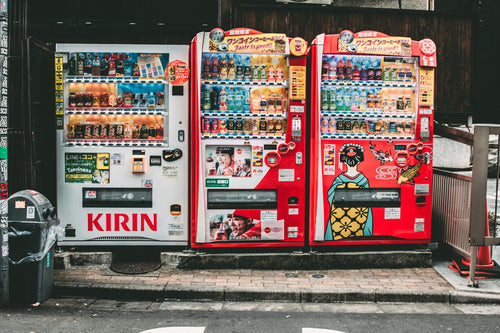
Essential Documents for Japan Travel
Traveling to Japan is a dream for many, offering experiences from rich historical landmarks and unique culinary adventures to cutting-edge technology. To make the most of your trip, it’s crucial to ensure you have all the necessary documents ready for a smooth journey. This guide covers the essential documents needed for travel to Japan, detailing entry requirements, helpful paperwork, and tips to keep your trip stress-free.
Contents
3. Flight Tickets and Travel Itinerary
4. Hotel Bookings and Accommodation Details
5. Japan Rail Pass and Transport Cards
6. Health Insurance and COVID-19 Requirements
1. Passport
A valid passport is the most essential document for international travel to Japan. Your passport must be valid for the duration of your stay, although it’s recommended to have at least six months of validity remaining to avoid any potential issues. Ensure your passport has at least one blank page for entry and exit stamps. It’s also wise to make photocopies of your passport or keep digital copies as a backup in case of loss or theft.
2. Visa
Many nationalities can enter Japan visa-free for short stays, typically up to 90 days for tourism purposes. However, visa requirements vary depending on your nationality, the purpose of your visit, and the length of your stay. Before traveling, check Japan’s visa requirements for your country on the official Japanese government or embassy website. If you require a visa, ensure you complete the necessary application forms and have all required documents, such as passport photos and an invitation letter if applicable.
3. Flight Tickets and Travel Itinerary
While Japan generally does not require proof of onward travel, having your flight tickets and a detailed travel itinerary can streamline your entry process and provide peace of mind. Make sure to carry a copy of your return or onward flight details. A detailed itinerary can also be helpful for organizing your trip and sharing with friends or family back home in case of emergencies.
4. Hotel Bookings and Accommodation Details
It’s a good idea to have your accommodation details readily available, including hotel addresses and booking confirmations. Japan’s immigration may ask for an address where you’ll be staying, so having these details handy can help speed up the process. Many travelers also print their accommodation information or save it digitally for convenience. If you’re staying at multiple locations, keep a list of all accommodations to avoid any confusion during your travels.
5. Japan Rail Pass and Transport Cards
The Japan Rail Pass is an excellent option for travelers planning to explore multiple regions, offering unlimited travel on JR trains for a fixed period. Purchase the pass online before arriving in Japan, as it’s often only available to foreign tourists. Once you’re in Japan, you’ll exchange your voucher at designated JR offices. Additionally, consider obtaining a prepaid transportation card, such as a Suica or Pasmo card, which can be used on trains, buses, and even some convenience stores. These cards offer convenience and save time during your trip.
6. Health Insurance and COVID-19 Requirements
Travel health insurance is essential when traveling to Japan, as medical expenses can be high. Check if your current insurance covers international travel or purchase a policy that includes medical coverage, emergency evacuation, and trip cancellation protection. As COVID-19 protocols may change, verify any entry requirements related to health documentation, such as vaccination proof or a negative test result. Carry physical or digital copies of health-related documents to ensure a smooth entry process.
7. Currency and Payment Cards
Japan is largely a cash-based society, so having Japanese yen on hand is recommended, especially for smaller businesses and rural areas. It’s wise to exchange some money before arrival or withdraw from ATMs in Japan, which can be found at airports and convenience stores. Also, bring an international debit or credit card, ideally one with no foreign transaction fees. Notify your bank of your travel dates to avoid any issues with card usage abroad.
8. Emergency Contacts and Embassy Information
In case of emergencies, it’s essential to have a list of contacts, including family or friends, as well as the contact information for your country’s embassy or consulate in Japan. Embassy assistance may be invaluable if you lose your passport or face legal issues. Also, note the emergency numbers for Japan: 110 for police and 119 for fire and medical services. Keeping a printed or digital list of emergency contacts will help ensure you’re prepared for any unexpected situations.
9. Helpful Apps and Travel Resources
Equipping your phone with a few essential apps can enhance your travel experience in Japan. Consider downloading navigation apps such as Google Maps or Japan Transit Planner for accurate directions and train schedules. Other useful apps include Google Translate for language assistance and currency converters to help with yen exchanges. Many travelers also find the Japan Official Travel App useful for local tips and updates on attractions, events, and safety alerts.
Being well-prepared with these essential documents and resources will ensure a smooth and enjoyable trip to Japan. By organizing your paperwork, confirming your visa requirements, and understanding health and safety protocols, you can focus on making the most of your journey. Japan awaits with its incredible culture, landscapes, and unforgettable experiences, ready to be explored by well-prepared travelers.
Share
You may also like
-

Visiting Japan’s Love Hotel Districts: What to Expect
Japan’s love hotel districts are famous for their unique and fascinating blend of privacy, creativity, and a touch of...
-

Top 10 Late-Night Dining Spots in Tokyo’s 24-Hour Cafes
Tokyo’s vibrant nightlife extends well beyond bars and nightclubs, with a thriving late-night dining culture tha...
-

Best Night Tours in Tokyo for After-Dark Adventures
Tokyo’s nightlife is renowned for its energy, vibrancy, and unique blend of traditional and modern experiences. From ...
-

Japan’s Late-Night Food Culture: 8 Best Street Eats
Japan’s late-night food culture is a vibrant experience, especially in bustling cities like Tokyo and Osaka, where de...
-

7 Rooftop Bars in Tokyo for Stunning Views
Tokyo’s rooftop bars offer some of the best ways to soak in the city’s skyline while enjoying drinks, atmosphere, and...
-

10 Best Nightclubs in Tokyo for Dancing and Music Lovers
Tokyo's nightlife is renowned for its variety and energy, with nightclubs that range from high-energy dance floors to...
-

8 Themed Bars and Cafes You Need to Visit in Tokyo
Tokyo is famous for its creative and quirky themed bars and cafes, offering immersive experiences for locals and...
-

Tokyo Nightlife Guide: Shinjuku, Shibuya, and Roppongi Highlights
Tokyo’s nightlife is legendary, offering a mix of vibrant energy, entertainment, and unique experiences in some of it...
-

7 Best Japanese Sake Bars in Tokyo
Tokyo is home to some of Japan’s best sake bars, offering both locals and visitors an opportunity to explore the...
-

Top 6 Observation Decks in Tokyo for Scenic Views
Tokyo’s observation decks offer some of the best panoramic views of the city, giving visitors a chance to see th...
-

Night Cruises in Tokyo: Enjoy the City Views
Tokyo’s skyline is mesmerizing at any time, but experiencing it from the water on a night cruise adds a magical ...
-

Roppongi Art and Nightlife Guide
Roppongi is one of Tokyo’s most vibrant districts, known for its lively nightlife, sophisticated art scene, and ...
-

Nightlife Guide to Shinjuku Kabukicho
Shinjuku’s Kabukicho district, known as Tokyo’s “Sleepless Town,” is the center of nightlife in Tokyo. Renowned ...
-

6 Best Night View Spots in Tokyo
Tokyo at night is a breathtaking spectacle, with illuminated skyscrapers, iconic landmarks, and bustling streets that...
-

Top 12 Sake Breweries in Japan for Tasting and Tours
Japan’s sake culture is celebrated around the world for its depth, complexity, and rich history. Sake, or nihons...
-

How to Enjoy a Night at a Japanese Izakaya
Japanese izakayas are casual, lively spots where locals gather after work to enjoy drinks, share small plates, a...
-

Exploring Karaoke Culture in Japan: 8 Best Places to Sing
Karaoke is an integral part of Japanese culture, offering a fun and entertaining way for friends, family, and even co...
-

5 recommended bars in Golden Gai
Golden Gai, nestled in the heart of Tokyo’s Shinjuku district, is one of the city’s most iconic bar districts. Known ...
-

10 Japanese Gardens You Should Visit for Tranquility
Japanese gardens are renowned for their beauty, tranquility, and intricate designs that reflect harmony with nature. ...
-

Japan’s Kimono Heritage: Symbolism, Style, and Where to See
The kimono, Japan’s traditional garment, is a beautiful and symbolic representation of Japanese culture. From its int...
-

Etiquette Essentials for Visitors to Japan
Japan’s culture is rich in respect, politeness, and consideration, making etiquette an essential part of daily l...
-

7 Best Places to Discover Japan’s Samurai History
Japan’s samurai history is one of honor, skill, and deep cultural influence, stretching back centuries and leaving an...
-

Geisha Culture in Japan: Myths and Realities
The world of geisha, Japan’s skilled performers and keepers of traditional arts, has long intrigued people around th...
-

Japan’s Unique Architecture: Top 8 Traditional and Modern Landmarks
Japan is renowned for its unique blend of ancient architectural heritage and cutting-edge modern designs. From c...
-

10 Traditional Japanese Festivals (Matsuri) You Can’t Miss
Japanese festivals, or *matsuri*, are vibrant celebrations of cultural heritage, featuring elaborate costumes, l...
-

Japan’s Three Great Onsen: A Guide to Famous Hot Springs
Japan is famous for its natural hot springs, or *onsen* (温泉), offering visitors a unique opportunity to relax and rej...
-

Japanese Art Exploration: Best Spots to Enjoy Art in Japan
Japan is a country rich in artistic heritage, from centuries-old traditional crafts to modern, innovative instal...
-

Guide to Japan’s Fireworks Festivals: When and Where to Go
Japan’s summer fireworks festivals, known as "hanabi taikai" (花火大会), are among the most anticipated events in th...
-

Where to Experience Ramen-Making Classes in Japan
Ramen is one of Japan’s most beloved dishes, with countless regional styles and flavors that attract food lovers from...
-

Power Spot Tours: Japan’s Famous Temples and Shrines
Japan is a land steeped in spiritual history, and visiting its temples and shrines provides not only a glimpse i...
-

UNESCO World Heritage Site Tour Guide in Japan
Japan is home to numerous UNESCO World Heritage Sites, each offering a glimpse into the country’s rich cultural herit...
-

5 Famous Japanese Castles: History and Highlights
Japan is home to some of the most beautiful and historically significant castles in the world. Built during the feuda...
-

10 Unique Drinks to Try from Japanese Vending Machines
Japan is famous for its vending machines, offering an incredible variety of drinks that go beyond just soft drinks an...
-

Tokyo Market Guide: Exploring Tsukiji and Toyosu Markets
Tokyo's Tsukiji and Toyosu Markets are must-visit spots for food lovers and anyone interested in Japan’s rich culinar...
-

Experiencing Traditional Tea Ceremony in Tokyo
The Japanese tea ceremony, or "chanoyu," is a cultural experience steeped in tradition, aesthetics, and mindfulness....
-

Top 7 Cherry Blossom Viewing Locations in Tokyo
Springtime in Tokyo is synonymous with the cherry blossom season, a breathtaking period when the city’s parks, rivers...
-

What is Onsen? A Guide to History, Benefits, and Etiquette
Onsen, Japan’s cherished hot spring culture, offers a unique blend of relaxation, scenic beauty, and deep-rooted trad...
-

What is Sake? Its Production Method and History
Sake is a traditional Japanese alcoholic beverage made from fermented rice. It has been enjoyed in Japan for over a t...
-

8 hot springs with beautiful scenery near Tokyo
Tokyo is a bustling metropolis, but just outside the city are some of Japan's most serene hot springs, or onsens, off...
-

Top 10 museum to visit in Tokyo
Tokyo is home to a diverse range of museums that cater to all interests, from art and history to technology and pop c...
-

9 Best Hot Spring and Bathhouse in Tokyo
Tokyo is known for its vibrant urban energy, but it's also a fantastic place to relax and rejuvenate in hot springs (...
-

15 Famous Temples and Shrines to Visit near Tokyo
Tokyo and its surrounding areas are home to many famous temples and shrines that showcase Japan's rich spiritual and ...










































